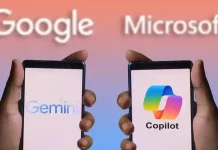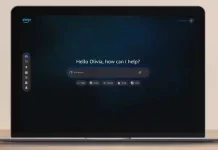After months of speculation, OpenAI officially unveiled its new ChatGPT Atlas browser on Tuesday, marking a major expansion of its ecosystem. The browser—currently available only for Mac users—introduces an upgraded version of ChatGPT Search, bringing the experience closer than ever to Google Search. Though the new search features are exclusive to Atlas for now, the update signals that OpenAI is positioning itself as a serious contender in the online search arena. Wider integration into the ChatGPT app and other browsers is likely on the horizon.
A New Era of AI-Driven Search
By 2025, most ChatGPT users have grown accustomed to seamless online research capabilities. Search has become an essential part of what makes ChatGPT powerful—helping the AI find and synthesize real-time information automatically. In most cases, users no longer need to manually click “Web Search”; the assistant intuitively knows when to look things up.
OpenAI has also pushed this capability beyond its chat app through ChatGPT Search, a standalone tool that can be set as the default search engine in supported browsers—directly challenging Google’s dominance. The introduction of ChatGPT Atlas refines and expands this experience.
How Atlas Enhances ChatGPT Search
During a livestream demonstration, OpenAI’s lead designer Ryan O’Rouke showcased how Atlas reimagines web navigation. Acknowledging that “search is one of the core flows in a browser for navigating the internet,” O’Rouke explained that typical search queries—often just a few words—can limit the depth of chatbot responses. Atlas aims to bridge that gap by merging conversational AI with traditional web browsing.
The redesigned ChatGPT Search now includes a tabbed interface, reminiscent of Google’s layout.
- The default “Home” tab delivers a chat-based experience, allowing users to converse naturally with ChatGPT while exploring links within responses—similar to Google’s AI Overview.
- Additional tabs provide more conventional search categories such as Web, Images, Videos, and News, giving users the option to browse results in a familiar format.
While Google’s interface remains more expansive, OpenAI isn’t trying to duplicate it tab-for-tab. Instead, Atlas focuses on blending ChatGPT’s conversational intelligence with search precision, offering users the best of both worlds.
A Hint of Google Behind the Scenes
Interestingly, some search results in ChatGPT Atlas appear to reference Google’s engine, evidenced by a prominent Google link visible at the top of certain query pages. This suggests a partial integration or reliance on Google for specific data retrieval—though OpenAI hasn’t elaborated on the partnership.
To experience ChatGPT Atlas firsthand, users will need to install the new OpenAI browser on a Mac. A Windows and mobile rollout is expected to follow in the coming months, as OpenAI continues to refine its search experience.





